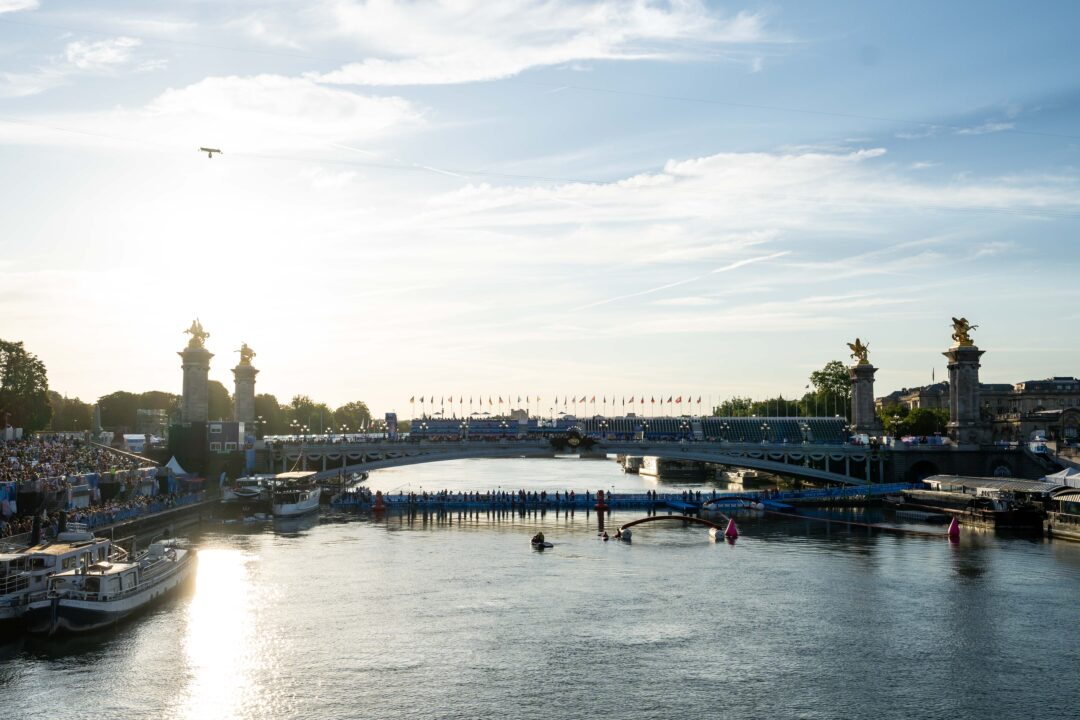French authorities have announced that swimming will once again be permitted in the Seine River starting in the summer of 2025, ending a century-long ban.
Paris City Hall first revealed the plan in 2015, when Mayor Anne Hidalgo outlined a long-term initiative to clean up the Seine and reopen it for swimming within a decade.
According to the Daily Sun, three public swimming areas will be opened along the Seine in summer 2025, with proper facilities to ensure safety and convenience for swimmers. These areas will be equipped with changing rooms, lifeguard stations, and access points. The locations are:
- Bras Marie in the 4th arrondissement, near Île Saint-Louis
- Bras de Grenelle in the 15th arrondissement, close to the Eiffel Tower
- Port de la Villette in the 19th arrondissement
Cutting through Paris, the Seine has been at the heart of the city since it was founded by ancient Romans. The easy access to water was a huge draw for the people of the Middle Ages who built Paris into then the largest city in Europe and an important commercial hub. Eventually, the Eiffel Tower, Notre Dame Cathedral, the Louvre, and the Musee d’Orsay were built along its banks. These iconic monuments draw millions of tourists to the Seine, as they float down the part of the river that flows through the very center of Paris. Some Parisians chart the waters on their own boats, and more cross daily on one of the 37 bridges connecting the Left and Right Banks.
The Seine has been used as a dumping ground for centuries. During the 16th century’s religious wars, bodies of Protestants and Catholics alike were thrown in. In 2007, 55 bodies were pulled from the water. Local government told TIME that “360 tons of large items [like bicycles and electronics] are hauled out of the Seine every year.”
But the biggest problem is the wastewater. Like many rivers that cut through centuries-old cities, tons of sewage and industrial wastewater has been dumped into the Seine. Paris’ sewer system funnels both rainwater and wastewater. When storms overwhelm the system—which happens about 12 times a year, according to Samuel Colin-Canivez, the city’s lead engineer for the sewage projects—the entire overflow is discharged directly into the Seine.
Cleaning up the Seine is not a new idea. In 1990, then-Paris mayor (and later French president) Jacques Chirac promised a grand clean-up of the Seine and that in three years “[he] will swim in the Seine in front of witnesses to prove that the Seine is a clean river.” That plan was not fulfilled, and Chirac died in 2019 without dipping a toe into the river.
Ahead of the 2024 Paris Olympics, organizers planned for the Seine to play a central role in the Games. The river was not only to host the Opening Ceremonies, with athletes floating down the river on barges dedicated to their respective countries, but several events, including the triathlon and open water swimming, were also scheduled to take place in the river.
To make the river usable for the Games, a massive cleanup effort was launched, costing 1.4 billion euros ($1.5 billion USD). This cleanup project, which began after Paris won the Olympic bid, was aimed at not only making the river suitable for Olympic events but also revitalizing it for recreational use.
In the lead-up to the Paris Games, concerns mounted over whether the Seine would be safe enough to host the scheduled competitions. From June 24 to July 2, tests showed that levels of enterococci and E. coli bacteria were below the allowable limits on six of the nine days. The results of the previous test a month prior revealed unsafe levels of E. coli in four different areas for the third week in a row, including 10 times above acceptable limits on June 18.
Despite the uncertainty, the river ultimately met the necessary water quality standards, and the open water swimming events—held August 8–9—went ahead as planned. The triathlon’s swimming segments, scheduled for July 30–31 and August 5 (mixed relay), were also held in the Seine as intended.
Several swimmers reported illnesses following the competitions, namely Germany’s Leonie Beck, the 2023 10K open water world champion.

Does anybody remember “The Raft” by Stephen King (and from Creepshow 2)? Yeah, it’s like that.
I hope Parisians will see more benefits to cleaning up the Seine other than just being able to swim in it.
Good job. People don’t need to jump from the bridge anymore. Now they can just go down the stairs and go for a friendly swim and the outcome will be the same!
I was there the day after the Opening Ceremonies, got “stuck” due to a canceled flight.
It was revolting to think that people were going to compete in that river. Color-wise, the only thing I can describe it as was “grey”
No shock that people got sick in there during the OW races.
Only a year late.
Silly french. In America environmental degradation is lying liberal media fake news!
Climate change is fake news!
Manufacturing jobs is flooding in the USA, everyone is richer! Much richer!
US Economy is the best in the last 1000 years!
And I am the pope and sith
calls on clorox
I’m good, thanks!